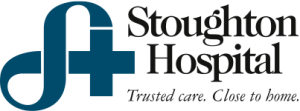Tag Archives: HAI’s
Physician and Nurse Champions Build Vascular Access Programs
Champions for the Cause: Using the TAP Strategy to Identify Gaps in Preventing HAIs We have been teaching the importance of building vascular access teams and programs for many years. It is crucial to have a multidisciplinary team that works collaboratively
Report Shows National HAI Prevention “Progress in Some Areas While Improvements are Needed in Others”
The Centers for Disease Control and Prevention recently published the 2016 Healthcare-Associated Infection Progress Report (HAI Progress Report). This is a report that presents progress on the prevention of key healthcare-associated infections with an effort to highlight progress and also uncover
CLABSI’s Who’s accountable?
I was just reviewing the numbers related to CLABSI rates and we still have a lot of work to do! Studies still show that the majority of central lines become infected after day 5 of insertion. Vascular Access Programs and
Hospitals set to lose $272 million to HAC penalties in FY2016
First introduced in FY2015, the hospital-acquired condition (HAC) reduction program was created to incentivize short-term acute care hospitals to reduce the amount of HACs by penalizing those that fail to do so. HACs are reasonably preventable conditions that patients did
Reducing HAI’s by focusing on caregivers skin
A huge improvement has been found in the rate of CLABSI and SSI as well as some progress on hospital onset MRSA bacteremia and C. difficle infections by the Centers for Disease Control and Prevention in a study from 2011
Hospital-acquired conditions mean Medicare penalties for 700-plus hospitals
By Maureen McKinney | December 18, 2014 More than 700 hospitals will see their total Medicare payments docked by 1% in fiscal 2015 as part of the first year of a federal penalty program aimed at reducing preventable harm and improving patient safety.
Tips to a successful PICC insertion
What is your rate of success in placing PICC lines? If you can see and feel the vein, then probably pretty successful. The challenge lies in the patient that has no visible access. The PICC kits usually come with
Centers for Medicare expects to save $35 billion
The centers for Medicare/Medicaid launched a National program on April 12th, 2011 to reduce hospital readmissions by 20% and reduce hospital-acquired harm by 40%. CMS will fund up to $1 billion dollars for the program. What does this mean for







